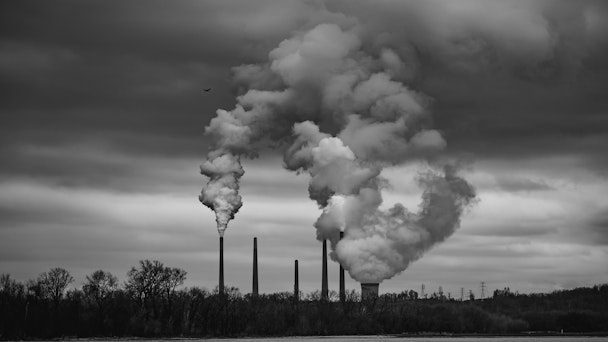‘Take responsibility for your clients’: UN backs crackdown on adland’s climate impact
Last week the United Nations-backed ‘Race to Zero’ campaign updated its membership criteria to include tougher standards specifically for the advertising and creative industries, asking agencies to “take responsibility” for their clients’ marketing activities.

Race to Zero is a global campaign to rally leadership and support for a zero-carbon future / Image via Unsplash
Advertisement
Following an international consultation that received more than 200 formal responses, the updated definition of climate leadership for the creative industry has been launched to gain maximum traction during the Cannes Lions festival, at which sustainability is a core track of content.
“An increasing number of service providers are rethinking their business models in ways that more actively take responsibility for the emissions their services might enable or facilitate,” the UN report states.
“Service providers often have substantial influence over such emissions and are therefore urged to more holistically consider, measure and set targets for their downstream emissions, taking responsibility for emissions arising from their clients’ business activities.”
The guide goes on to set out how firms can take that responsibility for their client’s emissions – this is dubbed ‘financed emissions’ (for the finance sector), ‘serviced emissions’ (for consultancy and advisory firms) and ‘advertised emissions’ (for the marketing, creative and advertising sector).
Advertisement
What are advertised emissions?
The concept is an effective approach for advertising and public relations firms, stipulating that advertisers and agencies should choose not to advertise certain products in the same way that financial institutions can choose not to invest in certain industries.
The Client Disclosure Reports, for instance, require PR and advertising agencies to disclose their revenue by client industry. The purpose of these disclosures is to build transparency in ‘true’ Scope 3 for an industry whose product is mainly intangible.
What is ‘Race to Zero’?
Race to Zero is a global campaign to rally leadership and support from businesses, cities, regions and investors for a healthy, resilient, zero-carbon recovery that prevents future threats, creates decent jobs and unlocks inclusive, sustainable growth.
Suggested newsletters for you
Duncan Meisel, executive director of the creative advocacy campaign Clean Creatives, says: “Race to Zero’s new criteria shows that the voices of creative professionals can transform our industry. This would not have happened without the work of organizations such as Purpose Disruptors and Futerra that bring creatives and PR professionals together to make change happen. The impact could not be more profound: a net-zero commitment for agencies now means counting – and cutting – the emissions created by working for dirty clients.”
Regarding advertising trade associations, within 12 months of joining Race to Zero members must now publicly list all trade association affiliations and disclose their governance structures for policy engagement. Race to Zero has said it will ask organizations to leave any trade association that “persist[s] in not aligning with scientific pathways,” and that it may rescind membership if organizations fail to do this. Therefore, it is likely that advertising trade associations will need to align with the new guidance on Advertised Emissions and Client Disclosure.
Additionally, Race to Zero will now require its members to “align their lobbying and advocacy activities with net-zero by proactively supporting climate policies at the subnational and national level consistent with the Race to Zero criteria.”
“We urge all Race to Zero actors to keep stepping up, or risk being removed from the Race,” reads a joint statement from Nigel Topping and Mahmoud Mohieldin, High-level Climate Champions for Cop26 and Cop27, respectively.
How will the industry react?
Solitaire Townsend, co-founder of the Futerra agency, a 2021 Cannes Lions jury member and a member of the Scope 3 Working Group (which developed the new standard), says “the bar has just skyrocketed.”
“Client disclosure reports and advertised emissions are now integral to climate leadership for advertising. The majority of clients use this standard, and many now require agencies to join the Race to Zero. This new guidance makes clear that managing our sector’s carbon ‘footprint’ is old news. Leadership is reserved for those changing their ‘brain print.’”
Jonathan Wise from the Purpose Disruptors campaign was also part of the Scope 3 Working Group. He says that if the industry is going to be a serious partner in the global transition toward net-zero, it needs to take responsibility for all of its emissions.
“This includes the emissions that result from the uplift in sales generated by its creative output – its advertised emissions. Adopting advertised emissions, it enables the industry to catch up with the finance industry, which has already adopted a similar concept of financed emissions. Race to Zero members are responsible for 50% of global GDP. Their decision to include this framework in their standards sets an ambitious, enforceable bar for climate leadership in the creative industries.”

